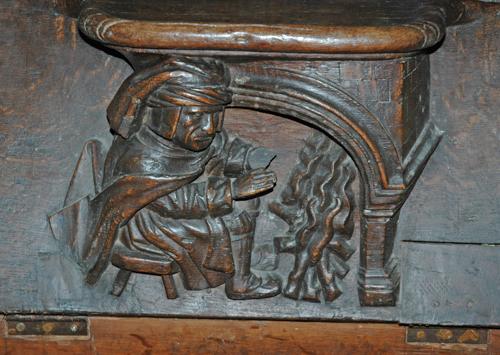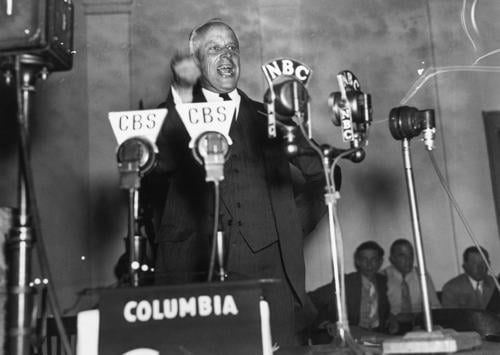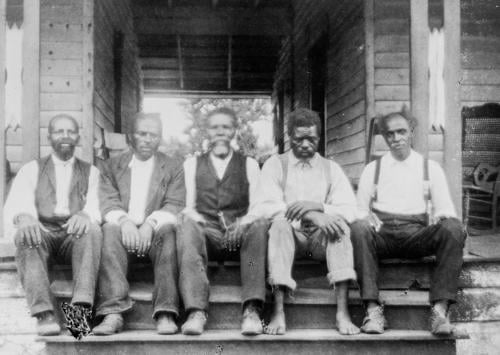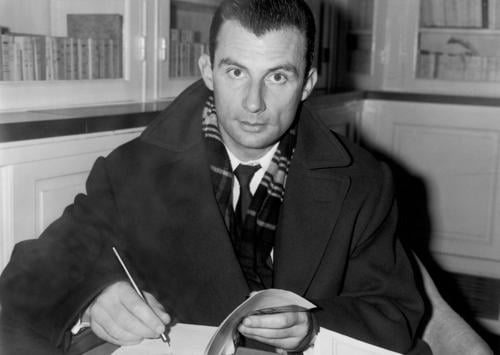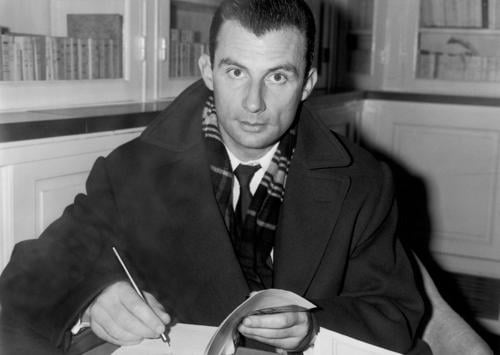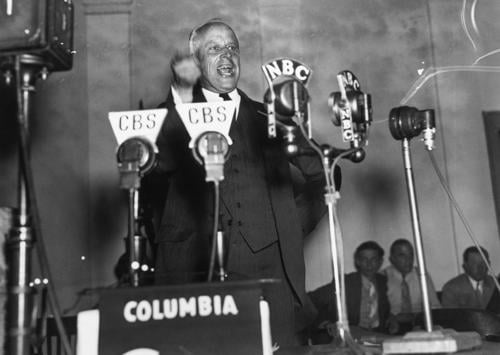Listen to New Voices on Studs Terkel our partnership with 826CHI-here! Read the Story
Showing 1 - 15 of 25 results
-
William Shirer discusses his book “Twentieth Century Journey: 1930-1940: Volume II”
Jun. 1, 1984 Discussing the book "Twentieth century journey: 1930-1940" with the author William Shirer.
-
Thomas Keneally discusses the book "Schindler's List"
Nov. 12, 1982 Thomas Keneally discusses the book "Schindler's List," detailing the actions of Oskar Schindler saving Jews during WWII.
-
Studs Terkel discusses journalism and mass media with Norman Corwin
1968 Studs discusses poetry and mass media with American writer Norman Corwin, who was visiting Chicago to receive an honorary award from Columbia College. Works discussed include Corwin's radio address, "On A Note of Triumph," which the author delivered on May 8, 1945 to mark the end of World War II in Europe, and "Ballad for Americans", a cantata produced by Corwin on CBS radio in 1939. Topics include Corwin's personal and professional history, the process of writing "for the ear", World War II, the dawn of the nuclear age, and the television's role in eclipsing radio in popularity.
-
Novelist Robert Kotlowitz reads from and discusses his book "The Boardwalk"
Feb. 3, 1977 Content Warning: This conversation includes racially and/or culturally derogatory language and/or negative depictions of Black and Indigenous people of color, women, and LGBTQI+ individuals. Rather than remove this content, we present it in the context of twentieth-century social history to acknowledge and learn from its impact and to inspire awareness and discussion. Almost all the characters in Robert Kotlowitz's book, "The Boardwalk" are fictitious with the exception of Teddy, a Jewish, 14-year-old boy, who Kotlowitz explains is Robert Kotlowitz.
-
Norman Thomas discusses social progress ; part 2
Dec. 30, 1964 Socialist Party leader and Presbyterian minister Norman Thomas discusses social progress, his political views, and where society is headed with Studs Terkel. This is the final part of his interview.
-
Marcel Ophuls discusses his documentary films
Apr. 30, 1984 Discussing the showing of his films with film maker Marcel Ophuls.
-
Louis Font and Ed Fox discuss their time in the military and the Vietnam War
Jun. 11, 1971 Louis Font and Ed Fox discuss their time in the military, the Vietnam War, military rituals, and West Point military academy. They express their anti-war sentiments and describe atrocities committed in Vietnam.
-
Lerone Bennett, Jr., John Hope Franklin and Hoyt Fuller discuss the book "Distortions of Negro History"
Jun. 3, 1965 Discussing "Distortions of Negro History" and interviewing Lerone Bennett, Jr., John Hope Franklin and Hoyt Fuller.
-
Joe Matthews discusses his background, life and death
Jun. 5, 1965 His background as a chaplain prepared Dean Joe Matthews for his role at the Ecumenical Institute of Chicago. Matthews believed there's no death without truly living one's life. What does it mean to be human and to truly live one's life are topics discussed, as well.
-
Jean Cau discusses his book "La pitié de Dieu" ; part 2
Nov. 1, 1962 When asked how he found time to write his book, Jean Cau said he took vacation time from his full time job. Cau was also asked if he wrote his book using a typewriter and Cau explained that he did all his writing with his own penmanship because he hated machinery, like the typewriter. In conclusion, Cau said he was writing a play about the Algerian War and its paratroopers. The play he finished writing was about the life and death of Adolf HiItler.
-
Jean Cau discusses his book "La pitié de Dieu" ; part 1
Nov. 1, 1962 Through an interpreter, Jean Cau discusses his book "La pitié de Dieu", or translated, "The Mercy of God". Cau's book is about four prisoners and their interactions with one another. Cau explained, in one way or another, with a reference to Kafka, we are all condemned and it will be a great surprise to all to learn what we are guilty of.
-
Interview with Barbara Cartland
Mar. 5, 1970 Interviewing Barbara Cartland at her castle and a Welsh physician in Tavistock Square while Studs was in England.
-
Interview with Barbara Cartland
Sep. 17, 1970 Discussing British depression with Barbara Cartland at her castle (part 2) while Studs was in England.



